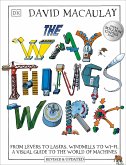The design of control systems is at the very core of engineering. Feedback controls are ubiquitous, ranging from simple room thermostats to airplane engine control. Helping to make sense of this wide-ranging field, this book provides a new approach by keeping a tight focus on the essentials with a limited, yet consistent set of examples. Analysis and design methods are explained in terms of theory and practice. The book covers classical, linear feedback controls, and linear approximations are used when needed. In parallel, the book covers time-discrete (digital) control systems and juxtaposes time-continuous and time-discrete treatment when needed. One chapter covers the industry-standard PID control, and one chapter provides several design examples with proposed solutions to commonly encountered design problems.
The book is ideal for upper level students in electrical engineering, mechanical engineering, biological/biomedical engineering, chemical engineering and agricultural and environmental engineering and provides a helpful refresher or introduction for graduate students and professionals
The book is ideal for upper level students in electrical engineering, mechanical engineering, biological/biomedical engineering, chemical engineering and agricultural and environmental engineering and provides a helpful refresher or introduction for graduate students and professionals
"Contending that nonlinear control theory is a completely separate field, Hadekker focuses on linear systems to describe the core areas of classical feedback control systems, including the mathematical tools needed for control analysis and design." --Reference & Research Book News, October 2013







